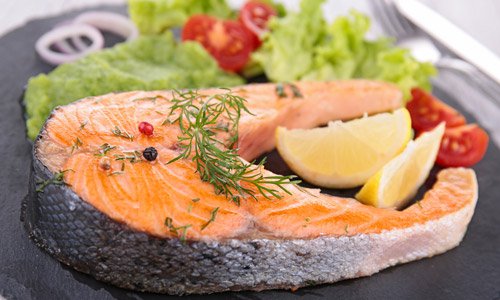When you head about the "fat," you probably automatically think "bad." That's because for years we've heard that fat causes heart attacks, high cholesterol, weight gain.
What Are Fats?
Fats are important part of your diet but some types are healthier than others. Choosing healthy fats from vegetable sources more often than less healthy types from animal products can help lower your risk for heart attack, stroke, and other major health problems.
Fats are a type of nutrient that you get from your diet. It is essential to eat some fats, though it is also harmful to eat too many.
The fats you eat give your body energy that it needs to work properly. You also need fat to keep your skin and hair healthy. Fat also helps you absorb vitamins A, D, E, and K, the so-called fat-soluble vitamins. Fat also fills your fat cells and insulates your body to help keep you warm.
Types of Fat
Monounsaturated and polyunsaturated (contain single bond) oils remain liquid at room temperature. Saturated and trans fat oils often clump up at room temperature. Unsaturated (contain double bond) oils contain essential fatty acids, which are nutrients your body needs.
Monounsaturated Fats These important heart-healthy fats are known to lower bad LDL cholesterol and raise good HDL cholesterol. They are found in olive oil, almonds, and avocados. Make no mistake though: Too much total fat—more than about 25% of calories—is still a bad idea. You want to limit saturated fats and trans fats. And curb the omega-6 fats, such as corn oil.
Saturated fats Saturated fats raise your LDL (bad) cholesterol level. High LDL cholesterol puts you at risk for heart attack, stroke, and other major health problems. You should avoid or limit foods that are high in saturated fats. You get saturated fats from fatty cuts of meat, coconut, palm, and palm kernel oil, whole and 2 percent milk, whole cheese, butter, premium ice cream.
Unsaturated fats : Eating unsaturated fats instead of saturated fats can help lower your LDL cholesterol. Most vegetable oils that are liquid at room temperature have unsaturated fats. There are two kinds of unsaturated fats:
· Mono-unsaturated fats, which include olive and canola oil
· Polyunsaturated fats, which include safflower, sunflower, corn, and soy oil
Trans fats A pervasive presence in processed foods and fast foods, these fats have been found to raise LDL cholesterol levels and lower levels of HDL cholesterol. Hydrogenated fats, or "trans fats," are found in fast foods and processed foods (margarines, cookies, crackers, frozen entrees) with partially hydrogenated oil as an ingredient.
Omega-3 Fats Named because of a chemical bond that falls in the number 3 position on the fatty acid chain, these liquid fats help lower bad LDL cholesterol, raise good HDL cholesterol, lower triglycerides (a type of blood fat), and may reduce the risk of blood clots.
5 Good fats for your Body
Avocados
Avocados are different than most fruits, because they are loaded with healthy fats instead of carbs. They are creamy, tasty and high in fiber, potassium and vitamin C.
Walnuts
Walnuts have earned their superfood status in part because of their fats. They are one of the few foods to deliver alpha-linolenic acid (ALA), a type of omega-3 fat thought to protect against heart disease.
Peanut Butter
Smear some toast or apple slices with peanut butter and you have a breakfast or snack with staying power. The unsaturated fats in peanut butter help make the meal satisfying by making it take longer to digest, and it’s also packed with protein.
Almonds
The almond is a popular type of nut. It is loaded with vitamin E, antioxidants, magnesium and fiber. Studies show that almonds can help you lose weight, and provide impressive benefits for metabolic health . Almonds are particularly high in monounsaturated fat, the kind that helps improve your cholesterol levels.
Salmon
Salmon is a type of oily fish that is incredibly popular due to its excellent taste and high amount of nutrients, including protein and Omega-3 fatty acids. It also contains some vitamin D.
Source: medlineplus.gov, prevention.com, foodnetwork.com, authoritynutrition.com
